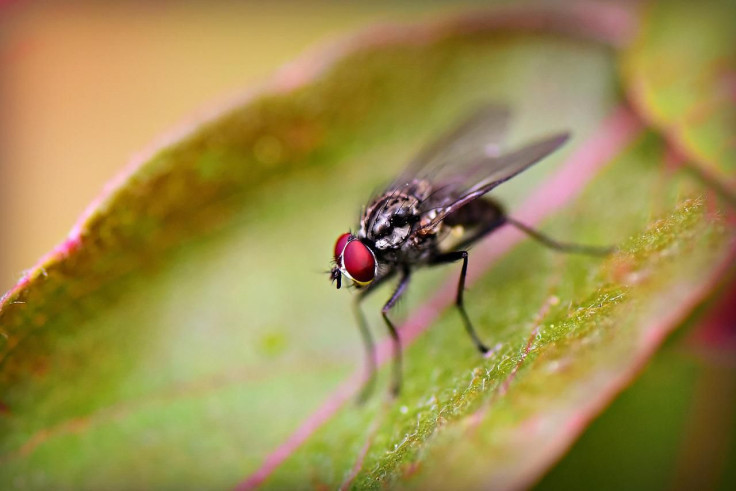'Master Of Manipulation': This Zombie Fungus Makes Male Flies Mate With Female Corpses
KEY POINTS
- After the host dies, the spores release signals to entice the male flies
- The spores even make the carcasses of female flies more enticing over time
- This discovery may actually have practical uses
A "manipulative" type of fungi has a rather disturbing way to survive, researchers have found. To ensure that its spores will spread, it lures male flies into mating with the corpses of infected female flies.
The fungus in the spotlight is the Entomophthora muscae, which is a "widespread, pathogenic fungus" that infects common houseflies, the University of Copenhagen noted in a news release. As a "zombie" fly fungus, it essentially takes control of the infected fly. It releases enzymes that break down the host's body within seven days then causes it to crawl up "as high as possible" to die and release more spores.
This makes it fitting for the name entomophthora, which means "insect destroyer."
The researchers had a closer look at this behavior in their study that was published in the ISME Journal. As they explained, some pathogens have a tendency to manipulate their hosts' behaviors while others use the tactic of "sexual mimicry" to basically lure potential victims through "deceptive mating signals." Relying on both, they noted, is "unusual."
In their study, they found that after the female fly is "consumed alive from within" and crawled up to its position to die, the fungus then releases chemical signals that entice the healthy male flies to mate with the infected females' carcasses. This contact causes the males to get infected as well.
"The fungus exploits the willingness of male flies to mate and benefits from altering the behavior of uninfected male host flies," the researchers wrote.
"Our observations suggest that this is a very deliberate strategy for the fungus. It is a true master of manipulation — and this is incredibly fascinating," one of the study authors, Henrik H. De Fine Licht of the University of Copenhagen, said in the university news release.
The authors also found that the dead females become even more enticing to the males as more time passes after their death. In fact, 73% of the males in their behavioral experiments mate with the females that have been dead for 25 to 30 hours, the university noted. On the other hand, just 15% mate with the female corpses that have been dead for just three to eight hours.
"This is because the number of fungal spores increases with time," De Fine Licht explained.
While the study shows a rather disturbing behavior from the pathogen, the discovery may also come in handy. For instance, the mechanism of enticing the flies using the "fungal fragrance" may be used as a "biological pest control." However, instead of attracting them with the use of a female corpse, they will be lured into a trap, De Fine Licht added.
"Flies are quite unhygienic and can sicken humans and animals by spreading coli bacteria and any diseases that they are carrying," De Fine Licht said, as per the news release. "So, there is an incentive to limit housefly populations, in areas where food is being produced for example."

© Copyright IBTimes 2024. All rights reserved.






















